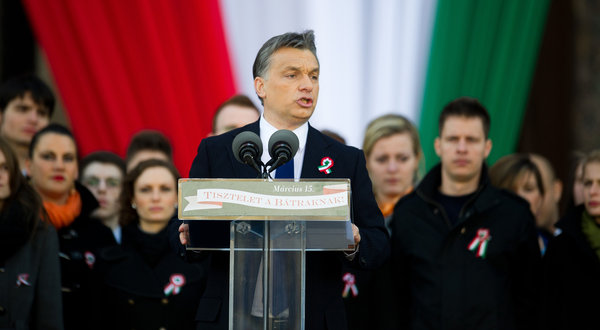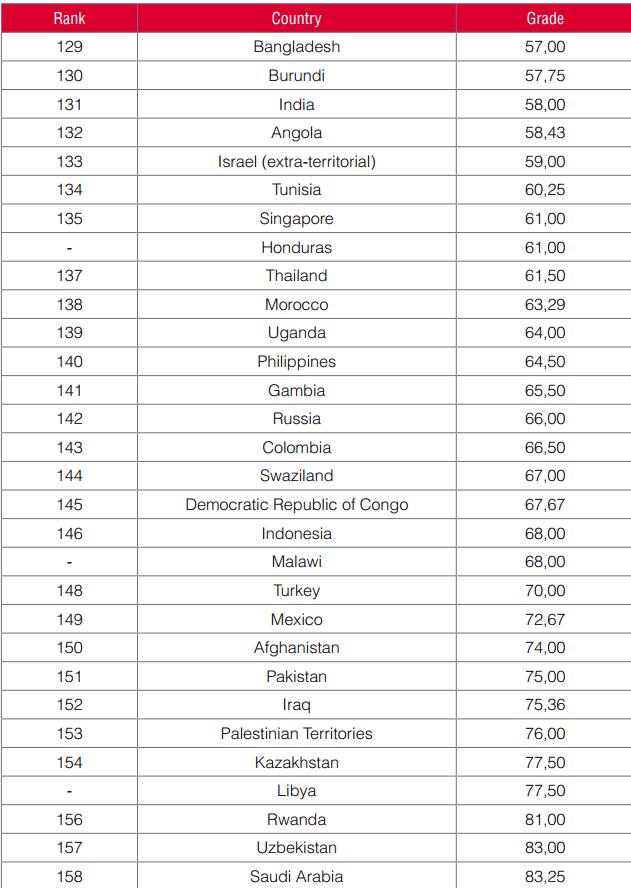 One of the great aspects of being on the right is the unrestrained ability (or even obligation) to talk about Hungarians living abroad. The first such article will be about the ones living in Slovakia. Slovakia is a relatively young country, being established only in 1993, with first coming into de facto existence by the Treaty of Trianon of 1920, a peace pact that forced millions of ethnic Hungarians into “exile”. Thus various Hungarian “enclaves” have been ceded to foreign powers, where their treatment was not in the least idylic. Along with these territories went cities of varying importance to Hungarian culture and history in general too. Pressburg (AKA Bratislava since 1920), present-day capital of Slovakia has been one of them, which is going to be in the center of attention in today’s article.
One of the great aspects of being on the right is the unrestrained ability (or even obligation) to talk about Hungarians living abroad. The first such article will be about the ones living in Slovakia. Slovakia is a relatively young country, being established only in 1993, with first coming into de facto existence by the Treaty of Trianon of 1920, a peace pact that forced millions of ethnic Hungarians into “exile”. Thus various Hungarian “enclaves” have been ceded to foreign powers, where their treatment was not in the least idylic. Along with these territories went cities of varying importance to Hungarian culture and history in general too. Pressburg (AKA Bratislava since 1920), present-day capital of Slovakia has been one of them, which is going to be in the center of attention in today’s article.
On March 10 elections have been held in Slovakia, where SMER has won a landslide victory by getting 83 out of 150 seats of the Slovak parliament. The party’s all-time president and freshly named prime minister, Robert Fico has been heavily criticized in the past for his heavy left-wing rhetorics, passionate anti-Hungarian outbursts and regular clashes with the press. In fact he went as far as suing Sme, a Slovak liberal daily over a caricature (due to a reference to Mr. Fico’s allegedly spineless character) and proposed a media law aimed at restricting freedom of the press.
Mr. Fico’s stance was no less malign towards the Hungarian minority, which constitutes about 10% of Slovakia’s population. He began by forming a government coalition with SNS, an ultra-nationalist party infamous throughout Europe with its hostile opposition towards all the possible minorities of Slovakia (especially Hungarians, but also Gypsies, homosexuals and generally anyone who disagrees with their agenda). Later on he expelled László Sólyom, then Hungary’s president from Slovakia (coupled with a rant about the hostile Slovak press and alleged magyarization done by Saint Stephen I), which severely soured the relationship between Slovakia and Hungary. He also made his stance even clearer when his fellow party member Marek Maďarič has submitted (and the government coalition led by Smer later passed) a revised form of the so-called “language law“. This law, originally passed by former prime minister Vladimír Mečiar in the middle of the 1990s, had only a single purpose: to push the usage of Hungarian “underground” i.e. deter Hungarians from speaking their native language in the open, especially in government offices and state-owned companies. Despite the fact that Slovak nationalists have asserted that the law’s sole purpose is to “protect the Slovak language”, the introduction of fines (and the law’s selective de facto application solely to Hungarian signs and pamphlets) was proof of the contrary.
All of this (as if by a stroke of magic) is supposed to change with the forming of the second Fico-government. Truth be told, the recent campaign wasn’t nearly as nationalistic as every single campaign between 2006 and 2010 (when even Smer’s billboards were openly nationalistic, whereas now only the ones of SNS were) and Smer’s two iconic anti-Hungarian boogeymen, namely Marek Maďarič and Dušan Čaplovič didn’t partake in the campaign all too often either (except for a few statements). In fact Mr. Fico’s stance toward the press seems to have been a more positive one as well: he gave an interview even to Slovakia’s only Hungarian daily Új Szó, which was unthinkable in the years 2006-2010. This might lead one to believe that Mr. Fico has finally realized that the press is a force to be reckoned (and not to be trifled) with. If that is so, we sincerely congratulate to Mr. Fico’s U-turn and hope that this leads to a better communication with the public in general. We also hope that such practices will sooner or later be adopted by Mr. Orbán and his crew as well.
The situation of the Hungarian minority of Slovakia remains unclear however. Smer’s nationalist boogeymen mentioned above have been awarded the ministries that the Hungarians are the most sensitive of: culture (Maďarič) and education (Čaplovič). Although they have promised to behave (and so far they do), Mr. Fico’s government is expected to introduce several cuts in order to keep the budget spending at par. And thus when the people’s anger turns against him, he might be overly tempted to compensate with recurrent anti-Hungarian rhetorics again.







 According to Csaba Tabajdi the measures aimed at punishing the Hungarian people would be unfair. The leader of MSZP’s EP delegation has called attention in a statement to the fact that the suspension of subsidies from the EU cohesion fund could lead to the formation of an anti-EU front of unity among Hungarians.
According to Csaba Tabajdi the measures aimed at punishing the Hungarian people would be unfair. The leader of MSZP’s EP delegation has called attention in a statement to the fact that the suspension of subsidies from the EU cohesion fund could lead to the formation of an anti-EU front of unity among Hungarians.

















